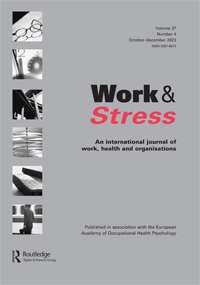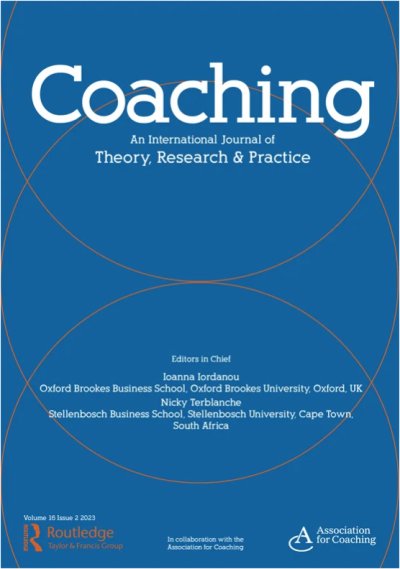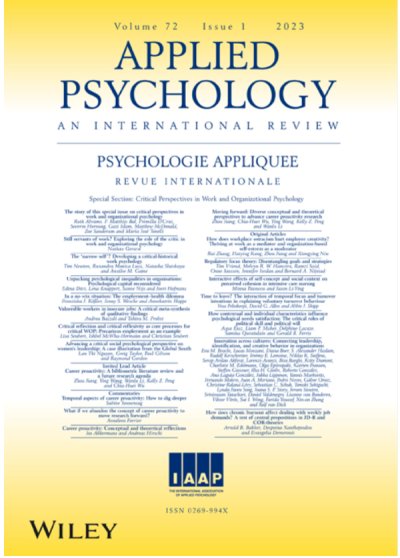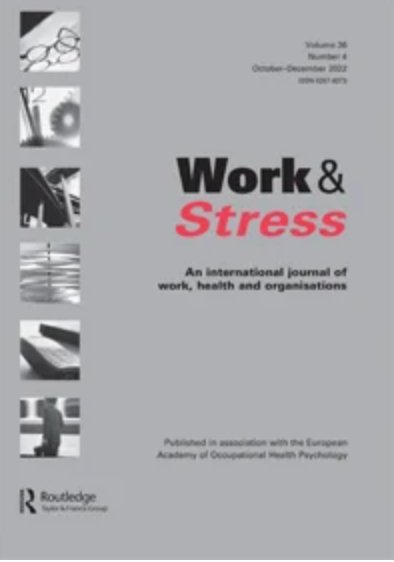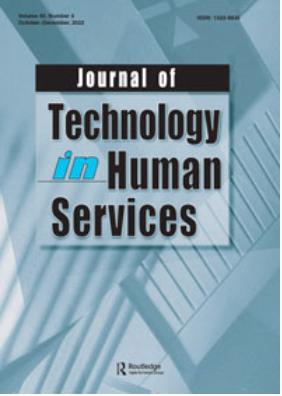Displaying 1 to 9 of 9
The recovery and return to work experiences of workers with long COVID (PDF, 865 Kb)
The severity and longevity of long COVID that has also affected the working population, raises the important question, how organisations can support workers with long COVID to stay and thrive in the workplace. In the present study, we used Interpretative Phenomenological Analysis to explore the lived...
Digital Training Program for Line Managers (Managing Minds at Work): Protocol for a Feasibility Pilot Cluster Randomized Controlled Trial
Tue, 24 Oct 2023
Line managers hold a primary role in preventing poor mental health within the workplace and, therefore, need to be equipped with the skills and knowledge to effectively carry out this role. The Managing Minds at Work (MMW) intervention aims to increase line managers' knowledge and confidence in preventing...
Coaching culture: an evidence review and framework for future research and practice
Coaching culture: an evidence review and framework for future research and practice
Wed, 30 Aug 2023
Given the colossal interest in creating 'coaching cultures', we update the 2014 literature review by Gormley and van Nieuwerburgh and extend this work by applying a Systematic Literature Review (SLR) methodology. In doing so, we detangle definitions and the conditions under which 'coaching cultures'...
The research on return to work for workers with common mental disorders has primarily focused on the pre-return journey. Relapses and recurrent sick leaves are prevalent and call for research on how we can support workers stay and thrive at work after long-term sickness absence due to common mental disorders....
Work fatigue during COVID-19 lockdown teleworking: the role of psychosocial, environmental, and social working conditions
Thu, 18 May 2023
During national lockdowns in response to the COVID-19 pandemic, previously office-based workers who transitioned to home-based teleworking faced additional demands (e.g., childcare, inadequate homeworking spaces) likely resulting in poor work privacy fit. Previous office research suggests poor work privacy...
Out Of Sight, Out Of Mind? A Literature Review Of Occupational Safety And Health Leadership And Management Of Distributed Workers (PDF, 3.8 Mb)
Out Of Sight, Out Of Mind? A Literature Review Of Occupational Safety And Health Leadership And Management Of Distributed Workers
Sun, 1 Jul 2018
Distributed workers those who work autonomously and remotely from their organisation's main locations for at least some of their work-time are an important and growing proportion of the workforce that share common characteristics of temporal and spatial distance. Yet, many leadership styles and management...
Igloo: An Intergrated Framework For Sustainable Return To Work In Workers With Common Mental Health Disorders (PDF, 1.7 Mb)
Igloo: An Intergrated Framework For Sustainable Return To Work In Workers With Common Mental Health Disorders
Tue, 20 Feb 2018
Current research on return to work (RTW) for employees with common mental disorders suffers from two limitations. First, research mostly focuses on the influence of resources during the absence period ignoring the resources which may facilitate sustainable RTW, i.e. employees continuing to work and thrive...
Factors Influencing Uptake And Use Of A New Health Information App For Young People (PDF, 1.4 Mb)
When young people need health information they are increasingly likely to use online sources and health apps (applications). Yet, these are not necessarily well-designed, reliable or appropriate, and research has primarily focused on adult use. Our study is the first to use qualitative mixed methods...
Using A Competency-Based Approach To Identify The Management Behaviours Required To Manage Workplace Stress In Nursing: A Critical Incident Study (PDF, 139 Kb)
Workplace stress is a significant problem in healthcare, especially within nursing. While there is a reasonable consensus regarding the sources of stress and its impact on health and well-being, little is known about the specific line manager behaviours that are associated with the effective and ineffective...

